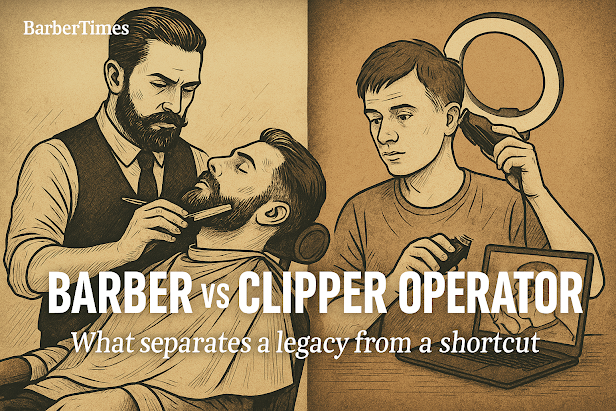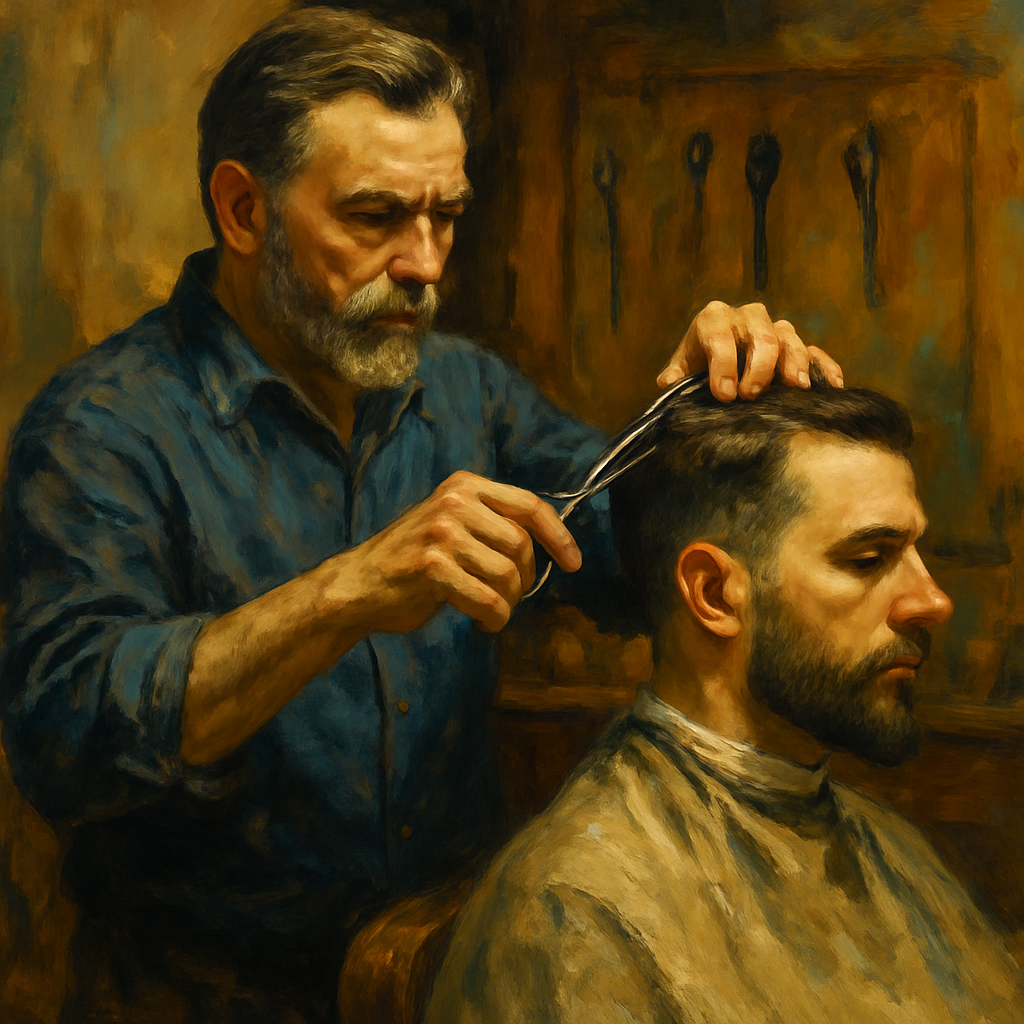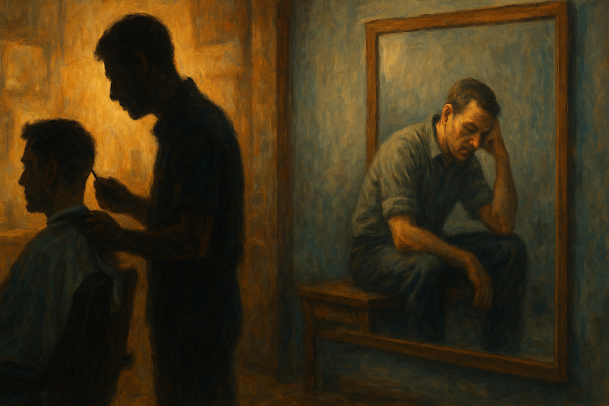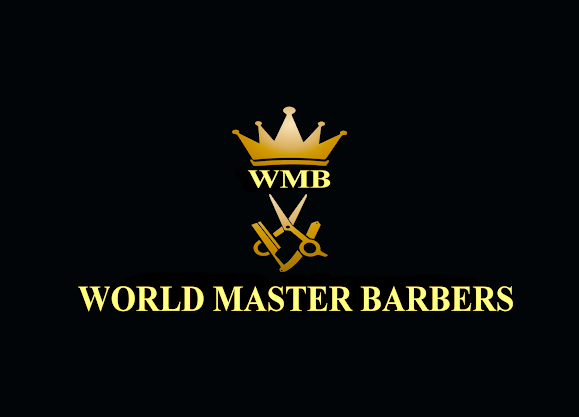Barber vs Clipper Operator
July 8, 2025

There are two types of people holding clippers in their hands today: the Barber, and the Clipper Operator. And while both may cut hair, only one carries the weight of a legacy.
The Barber: Trained by Tradition, Forged by Fire
A Barber is more than a profession. It's a lineage. A calling. A discipline born in the heart of real barbershops and grooming schools, passed down through face-to-face mentorship, hardened by hours of sweeping floors before ever touching a blade. A barber's journey starts not with clippers, but with humility.
He—or she—has been through the school of hard knocks, trained under masters, rising from apprentice to artist. A true barber learns first to serve, to respect the client, the chair, the blade, the culture.
They master the holy trinity of tools:
Scissors. Comb. Cutthroat razor.
These are the roots. These are the instruments that separate craft from convenience. A real barber knows the weight of a cutthroat razor, not just in his hand—but in the trust placed in him. He knows that each stroke carries decades of tradition and millimeters of precision. His comb becomes a compass. His scissors, an extension of thought. The blade? Sacred.
And most importantly:
A real barber is handmade—and makes by hand.
Every skill, every technique, every detail is learned through the hands. Nothing automated. Nothing artificial. What the hands learn, the soul remembers. And what the barber creates is never mass-produced. It's a one-on-one, living craft.
A true barber learns not just how to cut, but why. He learns etiquette, teamwork, business, hygiene, product knowledge, client psychology, and the sacred rhythm of the barbershop. This is a man—or woman—who can name the master that trained them. Because in the world of barbers, you earn your name by who taught you, not just by what you claim.
You don't "watch videos" to become a real barber. You get watched—by a master, every day. You don't self-declare. You get honored. That's why real barbers proudly tell you:
"I was trained by Master So-and-So."
"I earned my stripes under his watch."
Barbering is a community and a brotherhood, policed, protected, and preserved by organizations like the World Master Barbers. These guardians of the trade ensure that the ancient flame of true barbering never dims.
The Clipper Operator: A Fade Without a Foundation
And then... there's the Clipper Operator.
Armed with wireless clippers, social media tutorials, and a ring light, the clipper operator thinks a "fade" is all it takes to be a barber. No license. No mentorship. No etiquette. No discipline. Just clippers and ego.
Let's say it clearly: a grandma with a steady hand can give a good fade. That doesn't make her a barber.
Clipper operators often skip the essentials. They jump straight to trending styles, skipping the foundation of barbering: human connection, sanitation, discipline, deep technique. They chase follows and fame, not form and fundamentals.
They might be good at cutting hair, but they have no clue about serving people.
They've never lathered a hot shave, never been corrected by a mentor for sloppy scissor technique, never stood for hours watching before ever getting a turn.
They talk the talk, but they never walked the walk. And worse: they wear the title they haven't earned.
This is cultural appropriation of a craft, not creativity. It's imitation, not initiation.
This Craft Has Guardians
Real barbers around the world are watching. The World Master Barbers are not silent. They are the watchmen and women who protect this sacred trade. And they know the difference between someone who studied the art for years and someone who binge-watched "How to Fade" on YouTube.
Real barbers carry pride—but also responsibility. The responsibility to teach, to guide, and to defend the honor of the profession.
Barbering is a culture. A tradition. A lifestyle rooted in respect, patience, learning, and lineage.
Clipper operating is just... a shortcut.
In Conclusion: It's Time We Say It Loud
A Barber is not someone who owns clippers.
A Barber is someone who earned the right to touch your head.
The next time someone calls themselves a barber, ask:
"Who trained you?"
"Under which master did you learn?"
"Where did you serve your apprenticeship?"
If they can't answer, you've found a clipper operator.
Let us protect the title. Let us preserve the art. Let us honor the ancestors of our trade by demanding the standards they lived by.
Because in the barbershop, there's no such thing as fake it till you make it.
You either made it the right way—or you're just holding clippers.


